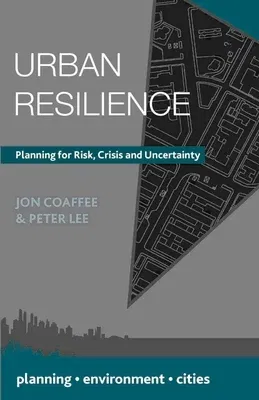Jon Coaffee
(Author)Urban Resilience (2017)Paperback - 2017, 16 May 2016

Qty
1
Turbo
Ships in 2 - 3 days
In Stock
Free Delivery
Cash on Delivery
15 Days
Free Returns
Secure Checkout

Part of Series
Planning, Environment, Cities
Print Length
320 pages
Language
English
Publisher
Red Globe Press
Date Published
16 May 2016
ISBN-10
1137288825
ISBN-13
9781137288820
Description
Product Details
Authors:
Book Edition:
2017
Book Format:
Paperback
Country of Origin:
US
Date Published:
16 May 2016
Dimensions:
21.34 x
13.72 x
1.78 cm
Genre:
Urban
ISBN-10:
1137288825
ISBN-13:
9781137288820
Language:
English
Location:
New York
Pages:
320
Publisher:
Weight:
385.55 gm